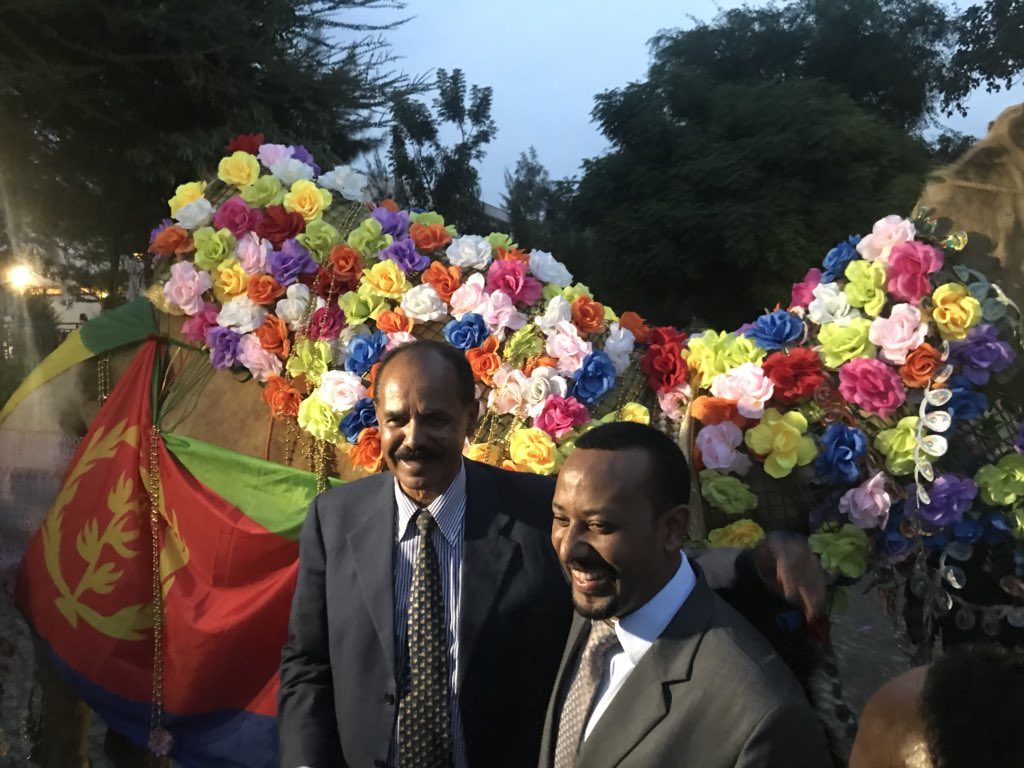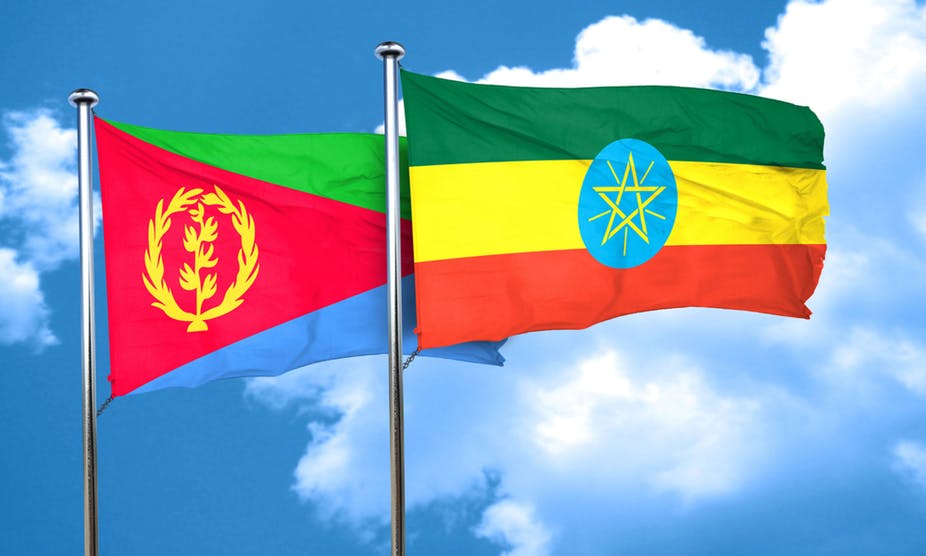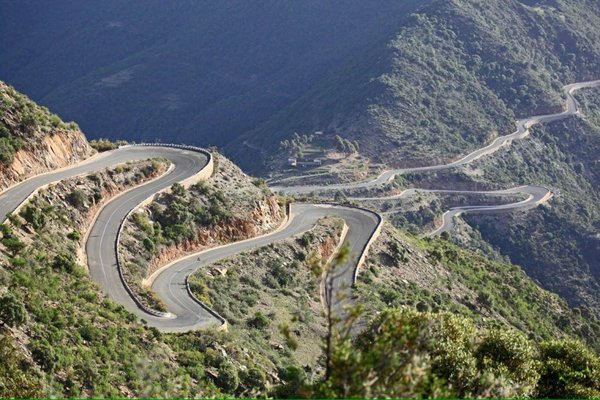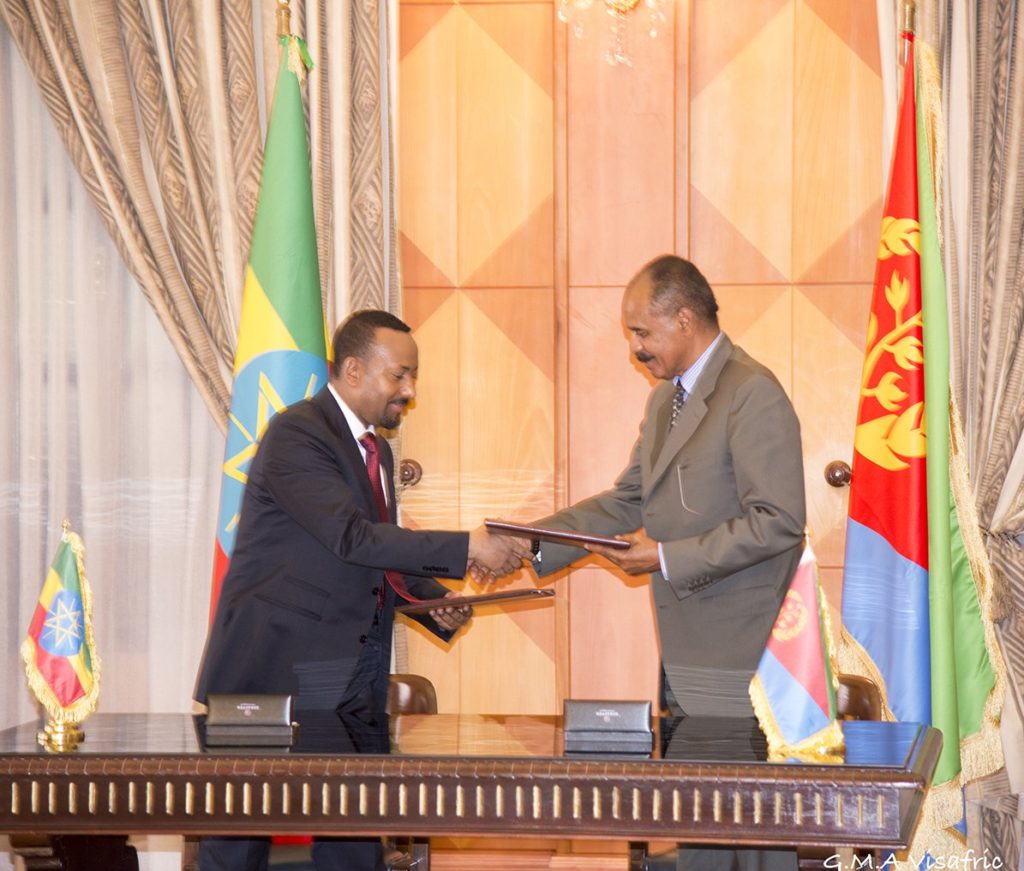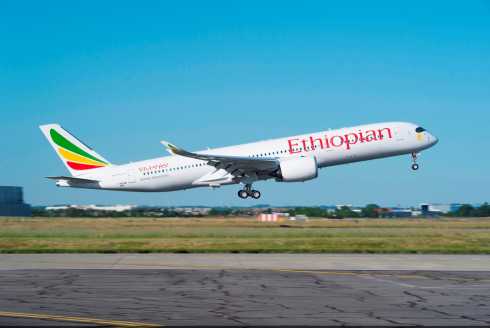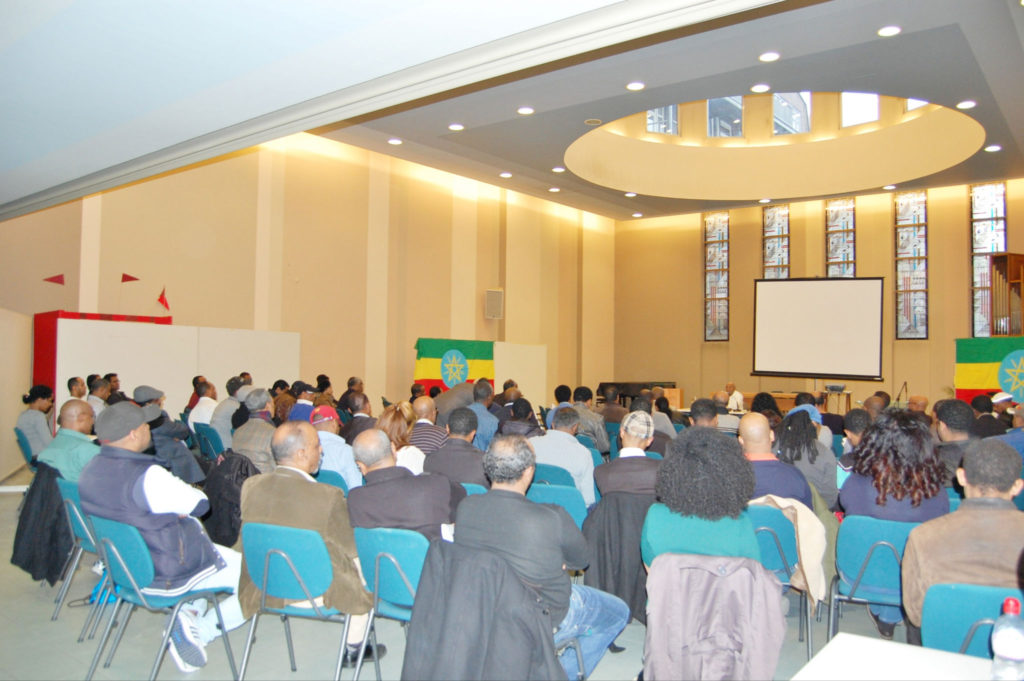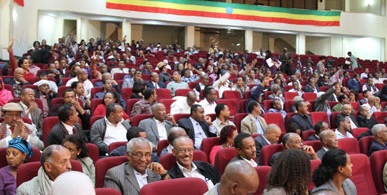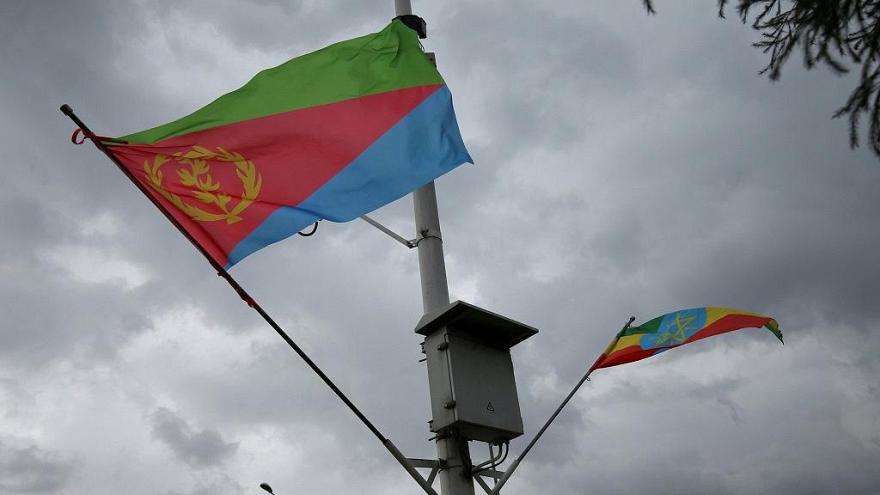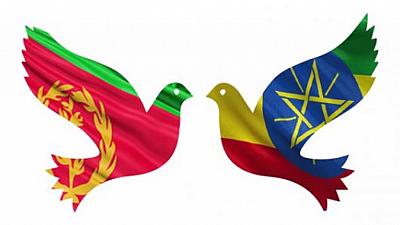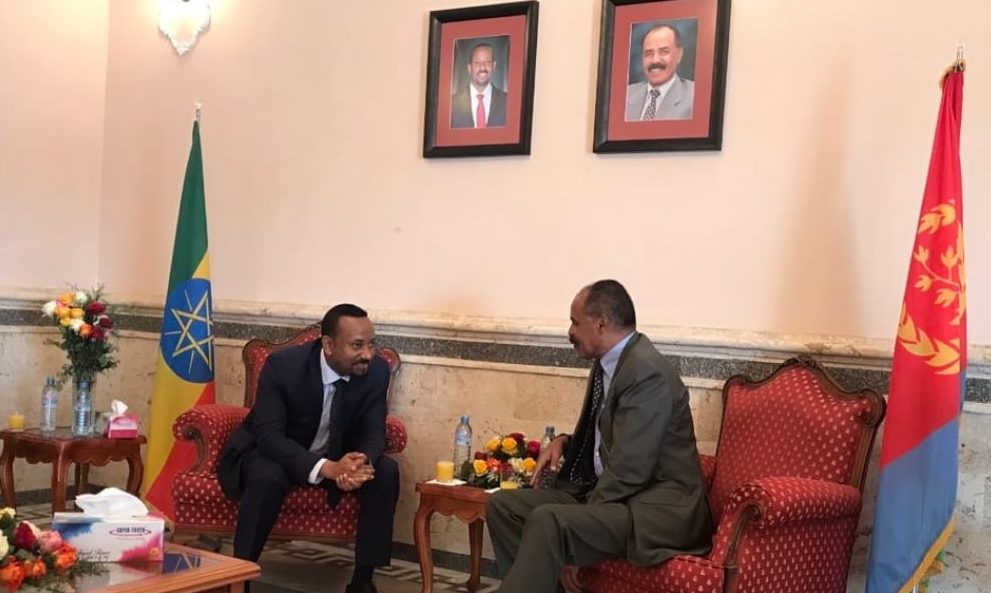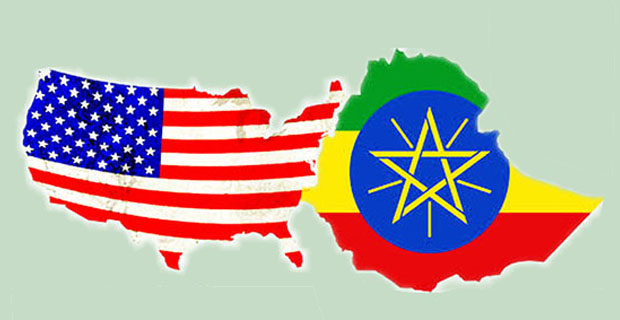
This article describes the stellar accomplishments made in the past 100 days since the swearing-in of Prime Minister Abiy Ahmed.
1. Fostered Internal Stability
Today marks the 100th day of the premiership of Dr Abiy Ahmed. His performance so far can only be rated as outstanding on all fronts. The popularity of the numerous measures he has taken so far and the speed with which each of them is delivered are nothing short of a miracle. The PM has done in this short period what many wouldn’t even imagine getting done in years. His name has now become synonymous with optimism for an overwhelming majority of Ethiopians. International News Outlets such as the BBC have described him as “one of the most dynamic and charismatic politicians to emerge in modern Africa.”
Prime Minister Abiy Ahmed came to power right in the middle of the worst political and social crisis that hit the country in decades. Due to popular unrest hitting major regions in Ethiopia, the government was forced to declare martial law twice in two years’ time since 2016. Demonstrations, roadblocks and conflicts flared up in almost all major urban and rural areas. Violence reached the outskirts of the capital, Addis Ababa, a city of at least 5 million, severely limiting day-to-day public affairs. Despite EPRDF’s desperate attempt to curb unrest, the unrest finally culminated in the resignation of its chairperson and the election of PM Abiy Ahmed through a tightly contested inter-party election.
1.1 Inspired the Nation
Even before coming to the helm of the country’s political power, Abiy Ahmed was known for his charisma. He was frequently quoted saying “Kal yigedlal, Kal yadinal” which roughly translates to “A word can kill, a word can save”. He thoroughly acted on this belief in his first 100 days, starting with his inauguration speech at the parliament. His inspirational quotes were carried far and wide throughout the nation. His words have become ubiquitous adorning window panes and bumper stickers all over Ethiopia. His message of unity through diversity and revival of the “Ethiopiawinet” (Ethiopianism) is widely celebrated, and his notion of “medemer” (synergy) has become a colloquial word. His frank and transparent manners, the way in which he spoke of his mother, wife and all women at his swearing-in ceremony not only stole the hearts of many but also gave away signs of the seriousness of the change that is taking place in Ethiopia. The phrases he used such as “When alive, we are Ethiopians, and in death, we become the land that is Ethiopia” are favourites among patriotic Ethiopians who are longing for a message of unity and solidarity in the midst of ethnic rivalry apparent for the past several years.
1.2 First-hand discussion with the people
PM Abiy Ahmed made stabilising the troubled nation his primary objective. He made regional visits and discussed with the community on matters that are important to them. He also delivered messages of solidarity in languages, customs and attires akin to the specific regions, raising issues that were taboo in Ethiopian politics yet very reflective of the local need. He kicked off his visit with the most affected areas in the last three years of anti-government demonstrations such as Ambo, Bale, Dembi-dollo and Gondar and continued to other regions such as Tigray, Hawassa, and Afar to experience first-hand the state of affairs in the different regions to ensure all voices are heard. His message of peace and unity was delivered in such an out-of-the-box and disarming way that it brought about a tangible impact on the nations and nationalities embraced in the country.
1.3 Expanded Political Space
Despite efforts exerted to widen the ever-narrowing post-2005 political space by the leading party EPRDF; the first tangible steps were actually undertaken in the last 100 days. This was evident with the release and pardon of political leaders. He lifted bans on political parties, website and various media outlets that were deemed terrorists and affiliates. and even invited them to operate locally. These ground-breaking changes helped in convincing the opposition and the sizeable Ethiopian diaspora that the change was not cosmetic but genuine and is bringing many onboard to participate in the country’s affairs. Furthermore, a draft pardon proclamation has been submitted to parliament for approval that will streamline the way the government releases wrongly accused and imprisoned individuals and organizations. Previous anti-terrorism, cyber-terrorism and other sweeping proclamations are put under revision by the newly appointed attorney general to pave the way for a less intrusive government and greater democratic reform.
The Prime Minister’s bold defense of his reforms in front of the House of People’s representatives went as far as blaming some within the government itself for terrorising the Ethiopian people, and firing and reshuffling of a series of untouchable civil servants. He is laying out a clear policy direction towards good-governance and accountability. Consequently, even state-owned/affiliated media such as EBC/ETC/Fana started broadcasting various rights abuses including in the criminal justice system. Such investigative reporting by the press is paving the way for those in the security and prison systems to be held accountable and brought to justice.
Another proof of the new administration’s move to widen the democratic space is the virtually nation-wide rallies organised by the local communities themselves in support of the new pro-democracy reforms. Demonstrators carried banners and flags of their choice while reflecting varied political views. However, all the demonstration were markedly peaceful and pro-reform except for an attack that killed few people and wounded many.
1.4 Reformed the Security Sector
Police, the military, the internal security, correctional facilities and other within the military-security establishment within the country were the ones that suffered from a serious lack of public confidence. Reforming these institutions in a top-down approach was a vital step towards restoring public trust and stability. It was along these lines that Dr Abiy Ahmed started by replacing old-guard veterans within these institutes in rapid succession. This was done in a respectful manner to ensure continuity in accordance with state protocol and full-honour retirement to the likes of the head of defence, head of security and former prime minister.
2. Fostered Diplomacy and Foreign Relations
Prime Minister Abiy Ahmed has markedly departed from the usual trend of conducting diplomacy within the horn and Africa. His “win-win” approach towards neighboring diplomacy, while rejecting the previous decades’ old trend of the typical “us-versus-them” and “allies vs. enemies” seems to work. In that regard, his biggest wins include putting an end to the “no peace – no war” situation with Eritrea that persisted for decades, improving regional economic ties and cooperation which has now created a huge movement for his nomination for the upcoming Nobel Peace Prize.
2.1 Improved Ethio-Eritrea Relations
20 years ago, the relations between the two countries deteriorated culminating in one of Africa’s bloodiest war. Since then “no war-no peace” stance between the two countries costed human lives and damaged both economies. Previously Eritrea maintained there would be no negotiations until Ethiopian troops pulled out of Eritrean as per the decision of the international boundary commission. However, this black curtain between the two countries has been shred and overtures have been made as evident with the recent visit of high-level delegates from Eritrea and the return visit to Asmara, Eritrea by the Prime Minister of Ethiopia. The parade throughout the 45km drive from the Airport to Asmara Palace showered the Ethiopian delegates with unprecedented public support and love.
2.2 Prioritized Security in the Horn of Africa
Prime Minister Abiy Ahmed travelled to all the neighbouring countries in past three months and met with South Sudan’s President and opposition leaders in Addis Ababa. As they say in political science, “Every country has the right to choose their allies. However, no one can choose their neighbours”. With this logic in mind, the Prime Minister has given priority in deepening diplomatic relations with neighbouring countries in the horn of Africa.
2.3 Signed New Agreements
Despite the fact that the Ethiopian government has been working towards the adoption of a principle of giving and taking an approach with its neighbours, the negotiations over the past 100 days were far-reaching. A deal was made to develop and operate a shipping port in Djibouti and Ethiopia to extend stakes to Djibouti in the telecom and other mutually agreed infrastructures. These measures benefit Ethiopia from an economic and political standpoint in the long run.
2.4 Took a stand on the Red-Sea Geopolitics
Following the Yemeni civil war, several Arab nations and Iran have been supporting either the ruling government or the rebels. Iran, Qatar, Turkey and Sudan are supporting one team whereas, Saudi Arabia, the United Arab Emirates, Bahrain and Egypt are on the other, making the Horn of Africa a volatile region. These groups have set up some military camps and bases including in Eritrea. Ethiopia did not choose sides for the past years. While this may deem beneficial, the repercussion of not choosing side could be hazardous. Over the last three months, a number of measures have been taken to take a stance. In particular, the visits to Saudi Arabia and the United Arab Emirates have created an enabling environment for further discussions with Egypt and Eritrea. In addition to the economic burden of the effects of the effects of maritime travel, and the gateway in this area, the internet security of this gateway is immense. Furthermore, if Egypt had succeeded in placing its maritime force in Eritrea, it would have been a significant implication for the sovereignty of Ethiopia. The breakthroughs in the last 100 days to minimise such risks are the closure of the port deal with Eritrea could be beneficial in the long term.
3. Took measures to improve the Economy
Although the economy has been growing for the past ten years, over the past three years, the absence of internal stability and the long-stalled government mega projects were daunting challenges. Furthermore, infrastructure projects demand foreign currency and export capacity did not increase as expected which resulted in a large discrepancy whereby the foreign currency exchange was overcrowded by black market smugglers. As a result of this economic shortfall, jobs have plummeted, especially in the construction sector and the cost of living has increased significantly exacerbated by the increase in unemployed youth. Different activities have been accomplished over the last 100 days to temporarily mitigate these and other economic problems such as by bringing in over 3 Billion Dollars from the United Arab Emirates.
3.1 Engaged with the Private Sector
Under the premise that the engagement of the private sector is important in the economic reforms that the Prime Minister is aiming for, he has also carried out discussion with the business community at the Sheraton Hotel and the presidential palace on multiple various occasions. The investors inquired clarifications, and the Prime Minister highlighted the roles and responsibilities of the private sector and government to contribute towards the sustainable development of the country.
3.2 Solving Forex Crisis
One of the top issues discussed with the private sector was how to address the shortage of foreign currency. Several short-term measures have been taken to address this shortcoming. The 3 Billion Dollar donation from the United Arab Emirates has also been cited as an example, and the reform in the overall setup of the National Bank of Ethiopia should bring about a lasting change.
3.3 Encouraged Privatization
The Prime Minister announced a program to liberalise the economy and partially or fully privatise state-run firms. This may include selling of shares to foreign investors in large state companies such as Ethiopian Airlines with the intent to bring in hard currency to allow payments on outstanding debts and ease import bottlenecks.
3.4 Took serious measures about Good Governance
Evaluation of planning and implementation of the public sector in many government offices has not been transparent. This problem is evident also at ministerial levels. Prime Minister Abiy mentioned that in addition to the House of People’s Representatives’evaluation, another review would be made open to the general public in the coming fiscal year. Moreover, these government offices will have their plans published on their websites at the beginning of the fiscal year further inculcating transparency and accountability.
3.5 National Budget approved by the House of People’s Representatives
Following the 2010 financial year, the Council of Ministers has approved a budget of 346 billion (915 million 451 thousand 948 birrs) for the year 2011 E.C. (2018/2019 fiscal year). The budget was approved by the House of Peoples’ Representatives. Out of the allocated budget, regular expenditures totalled 91,067,160,000 birrs. The prime minister answered and clarified questions from members of the House during the annual budget presentation which was aired live on national TV. This budget allocation was different in that this administration made its budget with particular emphasis on poverty reduction, attention on not printing money to cover the budget deficit. Promises from donors and external sources have not been included but rather improve tax collection capacity of the government. The 2011E.C. budget was different in that it realised the level of debt burden Ethiopia is experiencing and intended to lower it.
4. Fostered Social Cohesion
4.1. Prime Minister Abiy attended various events and took the opportunity to speak to thousands of youth about “love and forgiveness.” The manner it was delivered was unlike any EPRDF leadership regarding content and delivery and captured the hearts and minds of the Ethiopian youth to actively participate in political and social affairs in the country.
4.2. The prime minister has initiated the effort to reconcile the differences between the Ethiopian Islamic Affairs Council and Committee for the Solution of Ethiopian Muslim Affairs. This has been recognised as a major step as the country has embarked on a peaceful, loving, and co-operative journey. Also, the prime minister has also initiated the reconciliation process between the Ethiopian Orthodox Church community at home and abroad.
4.3. Abiy Ahmed in his fourth trip official trip abroad to Saudi Arabia took his entourage to visit Mohammed, the Ethiopian boy who was in a coma for the past twelve years due to medical error and assured his mom and the community they will soon get justice. He also discussed the release and return of Ethiopian prisoners to their country.
4.4. Prime Minister Abiy is known to comfort patients in various hospitals and participate in blood donations drive.
